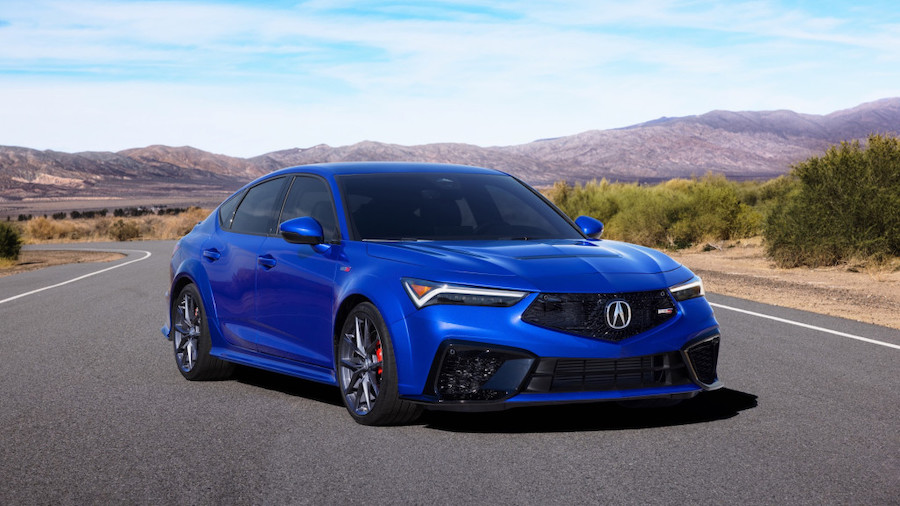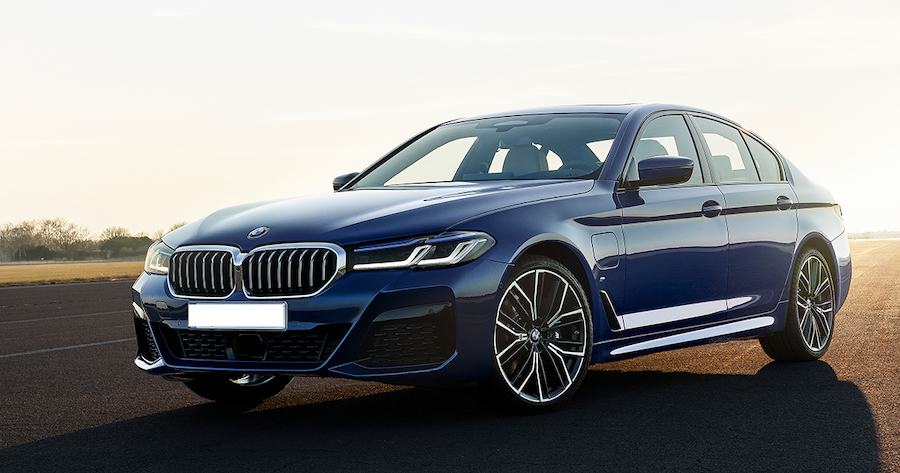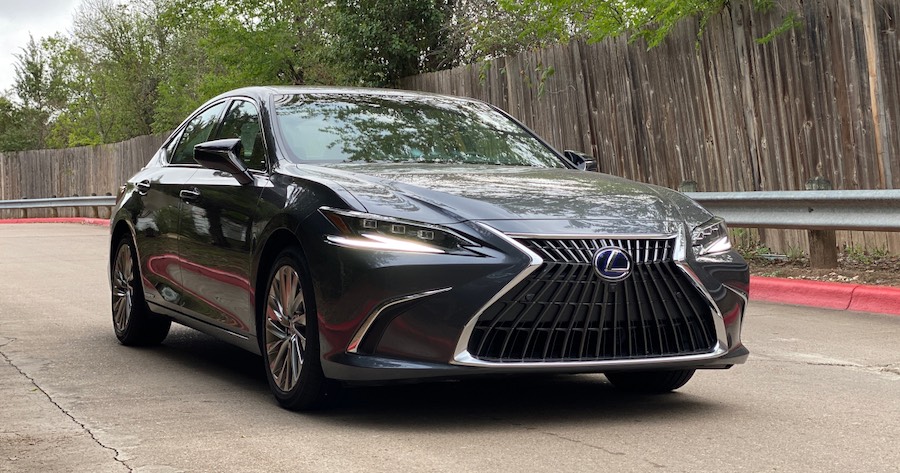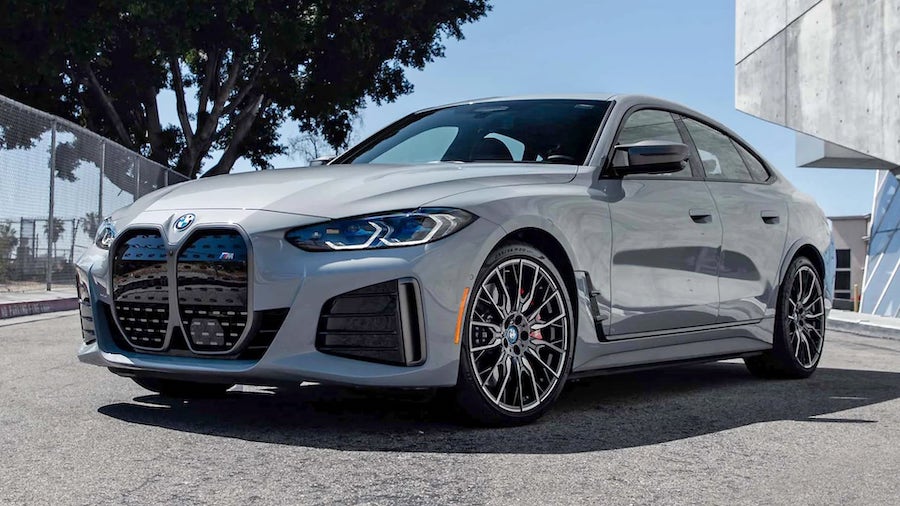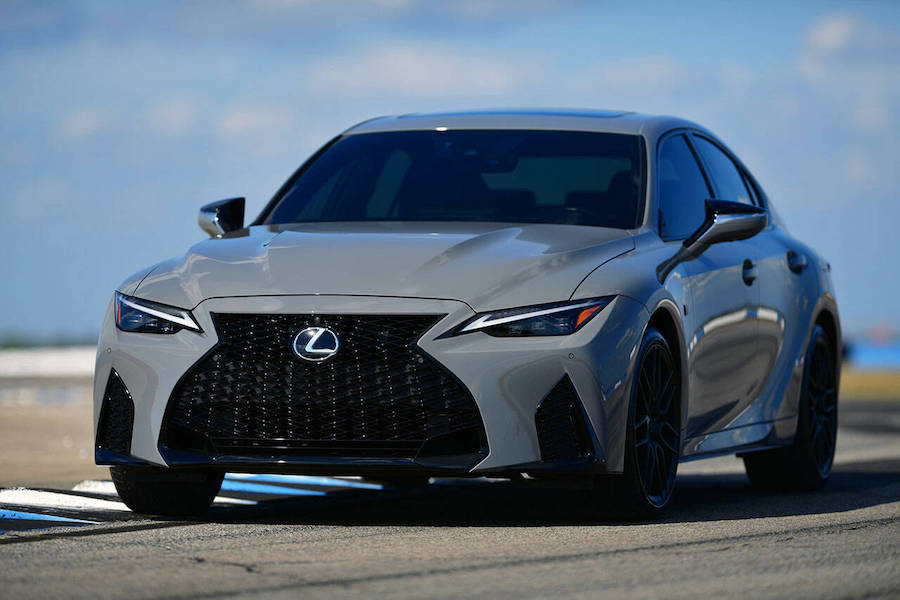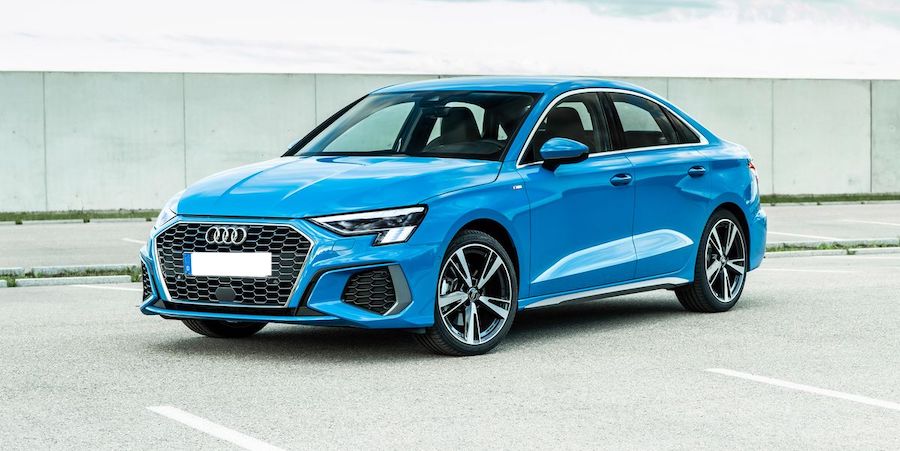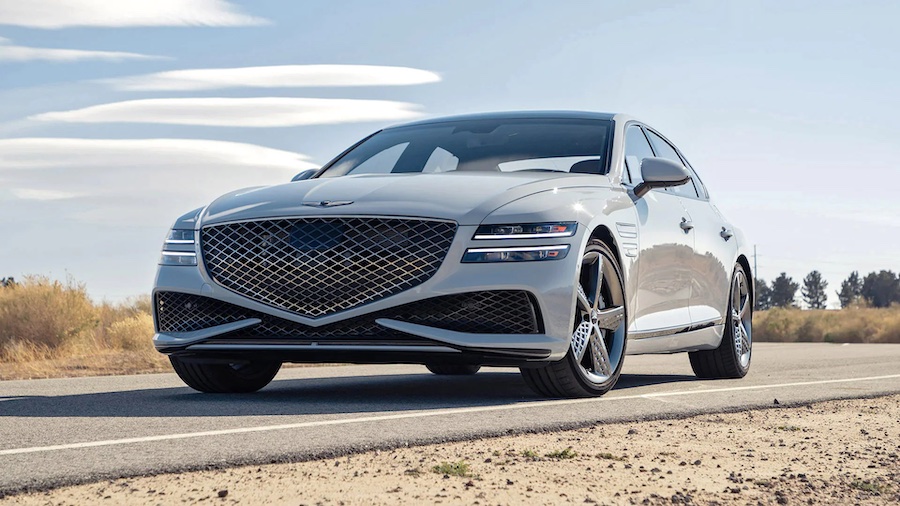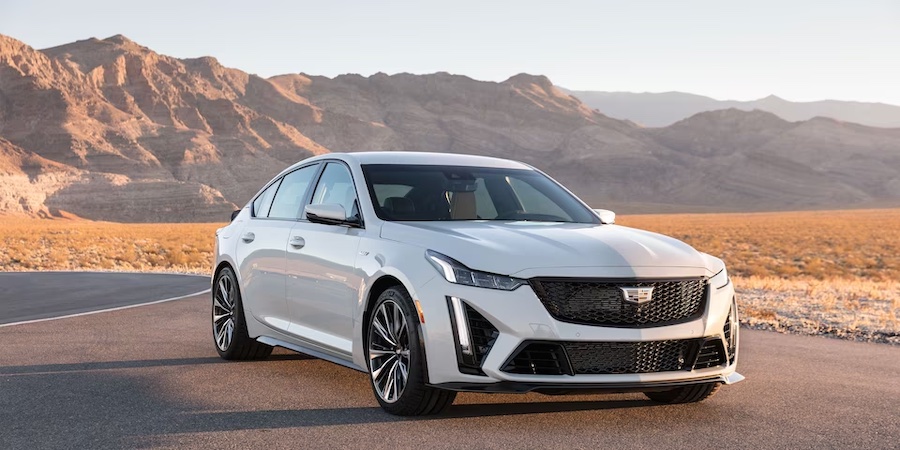The 10 Best Luxury Cars Lease Deals
Leasing a luxury car has become an increasingly popular option for those who desire the thrill of driving a high-end vehicle without the long-term commitment and costs associated with ownership. Luxury car lease deals offer a myriad of benefits, such as lower monthly payments, the opportunity to drive the latest models, and the flexibility to change vehicles more frequently. This article will explore the top 10 best luxury car lease deals available and provide valuable insights to help you make an informed decision when choosing a lease deal that suits your needs and preferences.
Top 10 Luxury Car Lease Deals
| Rank | Make and Model | Avg. Monthly Payment | Due at Signing | Lease Term | Annual Mileage Limit |
|---|---|---|---|---|---|
| 1 | 2024 Acura Integra | $517 | $2,000 | 36 months | 12,000 |
| 2 | 2023 BMW 5 Series | $730 | $2,000 | 36 months | 12,000 |
| 3 | 2023 Lexus ES | $554 | $2,000 | 36 months | 12,000 |
| 4 | 2023 BMW i4 | $561 | $2,000 | 36 months | 12,000 |
| 5 | 2023 Mercedes-Benz C-Class | $673 | $2,000 | 36 months | 12,000 |
| 6 | 2023 Lexus IS | $544 | $2,000 | 36 months | 12,000 |
| 7 | 2023 Audi A3 | $481 | $2,000 | 36 months | 12,000 |
| 8 | 2023 Genesis G80 | $645 | $2,000 | 36 months | 12,000 |
| 9 | 2023 Cadillac CT5 | $545 | $2,000 | 36 months | 12,000 |
| 10 | 2023 Audi A5 | $549 | $2,000 | 36 months | 12,000 |
Now let’s dive deeper into the details of each car model and their lease deals.
1. 2024 Acura Integra
The 2024 Acura Integra is a compact luxury hatchback offering an attractive combination of performance, technology, and style. Key features include Adaptive Cruise Control, Lane Keep Assist, and Front Heated Seats. The average lease payment for the Acura Integra is $517 per month with $2,000 due at signing for a 36-month term and a 12,000 annual mileage limit.
2. 2023 BMW 5 Series
The 2023 BMW 5 Series is a midsize luxury sedan known for its refined driving dynamics and cutting-edge technology. Standout features include Start/Stop System, Adaptive Cruise Control with Stop and Go, and In-Car WiFi. The average lease payment for the BMW 5 Series is $730 per month with $2,000 due at signing for a 36-month term and a 12,000 annual mileage limit.
3. 2023 Lexus ES
The 2023 Lexus ES is a midsize luxury sedan that delivers a smooth and comfortable ride, along with advanced safety features. Notable features include Pedestrian Detection, Adaptive Cruise Control with Stop and Go, and In-Car WiFi. The average lease payment for the Lexus ES is $554 per month with $2,000 due at signing for a 36-month term and a 12,000 annual mileage limit.
4. 2023 BMW i4
The 2023 BMW i4 is an all-electric compact luxury sedan with impressive performance and a sleek design. Key features include Hands-free Trunk/Liftgate, Power Trunk/Liftgate, and Adaptive Cruise Control with Stop and Go. The average lease payment for the BMW i4 is $561 per month with $2,000 due at signing for a 36-month term and a 12,000 annual mileage limit.
5. 2023 Mercedes-Benz C-Class
The 2023 Mercedes-Benz C-Class is a versatile compact luxury vehicle, available as a convertible, coupe, and sedan. It boasts a luxurious interior and advanced technology. Standout features include Pedestrian Detection, Start/Stop System, and Hands-free Trunk/Liftgate. The average lease payment for the Mercedes-Benz C-Class is $673 per month with $2,000 due at signing for a 36-month term and a 12,000 annual mileage limit.
6. 2023 Lexus IS
The 2023 Lexus IS is a compact luxury sedan that offers a comfortable ride, a well-appointed cabin, and a suite of advanced safety features. Notable features include Pedestrian Detection, Adaptive Cruise Control, and In-Car WiFi. The average lease payment for the Lexus IS is $544 per month with $2,000 due at signing for a 36-month term and a 12,000 annual mileage limit.
7. 2023 Audi A3
The 2023 Audi A3 is a compact luxury sedan known for its engaging driving experience and upscale interior. Key features include Start/Stop System, Power Trunk/Liftgate, and Adaptive Cruise Control with Stop and Go. The average lease payment for the Audi A3 is $481 per month with $2,000 due at signing for a 36-month term and a 12,000 annual mileage limit.
8. 2023 Genesis G80
The 2023 Genesis G80 is a full-size luxury sedan that offers a smooth ride, a spacious cabin, and an array of premium features. Standout features include Pedestrian Detection, Start/Stop System, and Hands-free Trunk/Liftgate. The average lease payment for the Genesis G80 is $645 per month with $2,000 due at signing for a 36-month term and a 12,000 annual mileage limit.
9. 2023 Cadillac CT5
The 2023 Cadillac CT5 is a compact luxury sedan that delivers a comfortable ride, a stylish design, and advanced technology. Notable features include Pedestrian Detection, Start/Stop System, and Adaptive Cruise Control with Stop and Go. The average lease payment for the Cadillac CT5 is $545 per month with $2,000 due at signing for a 36-month term and a 12,000 annual mileage limit.
10. 2023 Audi A5
The 2023 Audi A5 is a compact luxury vehicle available as a convertible, coupe, and hatchback. It offers a dynamic driving experience, a well-appointed interior, and the latest technology. Key features include Start/Stop System, Power Trunk/Liftgate, and Adaptive Cruise Control with Stop and Go. The average lease payment for the Audi A5 is $549 per month with $2,000 due at signing for a 36-month term and a 12,000 annual mileage limit.
Factors Affecting Lease Deals
When searching for the best luxury car lease deals, it’s essential to understand the factors that can influence the terms and pricing of a lease. By being aware of these factors, you can better evaluate lease deals and make more informed decisions. Here are some key factors that can affect lease deals:
Residual Value
The residual value is the estimated worth of the car at the end of the lease term. Higher residual values often result in lower monthly lease payments, as you are essentially paying for the car’s depreciation during the lease period. Cars with higher residual values tend to hold their value better, making them more attractive for leasing.
Money Factor
The money factor is a number used to calculate the interest rate on a lease. A lower money factor translates to a lower interest rate, ultimately resulting in lower monthly payments. Dealerships and leasing companies may offer lower money factors as part of promotional lease deals.
Lease Incentives
Manufacturers and dealerships may offer lease incentives to attract customers, such as cash rebates, low-interest rates, or additional discounts on specific models. These incentives can help reduce the overall cost of leasing a luxury car.
Credit Score
Your credit score plays a crucial role in determining the terms and conditions of your lease deal. Individuals with higher credit scores are more likely to qualify for better lease terms, including lower interest rates and more favorable down payment requirements.
Lease Term
The length of the lease term can impact the monthly lease payment. Generally, longer lease terms result in lower monthly payments, as the cost of the vehicle is spread out over a more extended period. However, a longer lease term may also mean higher interest charges over the life of the lease.
Mileage Limit
Lease agreements typically include a mileage limit, which determines how many miles you can drive the vehicle during the lease term. Exceeding the mileage limit can result in costly fees. Higher mileage limits often lead to higher monthly payments, as the car’s depreciation rate increases with more miles driven.
Negotiation
Like buying a car, negotiating the terms of a lease can result in more favorable conditions and pricing. Being well-informed about the factors that affect lease deals can provide you with the knowledge needed to negotiate better terms, potentially saving you money on your luxury car lease.
By considering these factors and conducting thorough research, you can find the best luxury car lease deals to suit your needs and preferences.
How to Negotiate the Best Lease Deal
Negotiating the best lease deal can save you money and ensure that you get the most favorable terms possible. Here are some tips to help you negotiate the best lease deal for your luxury car:
Do Your Research
Before entering negotiations, research the market prices and lease deals for the specific luxury car you’re interested in. Gather information on the vehicle’s MSRP, residual value, money factor, and current lease incentives. This knowledge will help you better understand the lease terms and give you a solid foundation for negotiation.
Know Your Credit Score
Understanding your credit score is crucial, as it significantly affects the lease terms and interest rates you qualify for. If you have a high credit score, you’ll likely be eligible for more favorable terms and lower interest rates. Be aware of your credit standing and use it as a bargaining chip if your score is strong.
Shop Around
Get lease quotes from multiple dealerships to compare deals and gain leverage during negotiations. This will not only give you an idea of the best deals available but also provide you with a stronger position to negotiate from, as you can reference competing offers.
Focus on the Components
When negotiating, focus on the individual components of the lease deal, such as the money factor, residual value, and any fees or charges. By breaking down the deal into separate components, you can work on improving specific terms rather than just focusing on the monthly payment.
Negotiate the Capitalized Cost
The capitalized cost is the negotiated price of the vehicle and directly affects your monthly lease payment. Aim to negotiate the lowest possible capitalized cost, as this will result in lower monthly payments. Use your research on the vehicle’s MSRP and current market prices to negotiate the best price.
Be Willing to Walk Away
If a dealership is unwilling to offer favorable terms or meet your demands, be prepared to walk away. This approach not only signals that you’re serious about getting the best deal, but it can also prompt the dealership to make a better offer to secure your business.
Look for Special Lease Offers
Manufacturers and dealerships often have special lease offers on specific models, which can result in better terms and lower monthly payments. Keep an eye out for these offers and use them as a starting point for negotiation.
Consider Timing
Dealerships and salespeople have monthly and quarterly sales goals, which can make them more likely to offer better deals towards the end of the month or quarter. Leasing at the right time can give you additional leverage during negotiations.
Be Polite and Professional
Maintain a polite and professional demeanor throughout the negotiation process. Being respectful and courteous can help establish a positive rapport with the salesperson, making them more likely to work with you in securing the best lease deal.
By following these tips and being well-prepared, you can effectively negotiate the best lease deal for your luxury car, saving money and getting the most favorable terms possible.
Lease vs. Buy: Pros and Cons
When deciding whether to lease or buy a luxury car, it’s essential to weigh the pros and cons of each option. Here are some of the main advantages and disadvantages of leasing and buying a car:
Leasing Pros
- Lower Monthly Payments: Leasing typically requires lower monthly payments compared to financing, as you’re only paying for the car’s depreciation during the lease term.
- Drive a New Car More Often: Leasing allows you to drive a new car every few years, giving you the opportunity to enjoy the latest models, features, and technology.
- Warranty Coverage: Most lease terms align with the manufacturer’s warranty, ensuring that your car is covered for repairs during the lease period.
- Lower Upfront Costs: Leasing often requires a smaller down payment or no down payment at all, making it more accessible for those with limited funds.
- Tax Advantages: In some cases, leasing can offer tax advantages for business owners who use the car for business purposes.
Leasing Cons
- No Ownership: At the end of the lease term, you don’t own the car, and you’ll need to return it or buy it at the residual value.
- Mileage Limits: Leases come with mileage limits, and exceeding these limits can result in costly fees.
- Lack of Equity: Since you’re not building equity in the car, you won’t have anything to trade-in or sell when the lease ends.
- Charges for Excessive Wear and Tear: Leasing agreements often include charges for excessive wear and tear, which can result in additional costs at the end of the lease.
- Less Flexibility: Ending a lease early can be expensive, and you may be subject to penalties and fees.
Buying Pros
- Ownership: When you buy a car, you own it outright once you’ve paid off the loan, and you can keep it for as long as you’d like.
- No Mileage Limits: Owning a car means there are no mileage limits, allowing you to drive as much as you want without worrying about fees.
- Build Equity: As you pay off the loan, you build equity in the car, which can be used for trade-in value or selling the vehicle later.
- Freedom to Customize: When you own a car, you’re free to customize and modify it to your liking, without restrictions from a leasing agreement.
- Potential Long-term Savings: Over time, owning a car can be more cost-effective, especially if you keep it well-maintained and drive it for many years.
Buying Cons
- Higher Monthly Payments: Financing a car usually comes with higher monthly payments compared to leasing, as you’re paying for the entire cost of the vehicle.
- Depreciation: Cars, especially luxury cars, can depreciate quickly, which can result in a lower resale or trade-in value later on.
- Higher Upfront Costs: Buying a car often requires a larger down payment, which may not be feasible for everyone.
- Maintenance Costs: As a car ages and the warranty expires, you’ll be responsible for any maintenance and repair costs.
- Less Frequent Upgrades: When you buy a car, you’re less likely to upgrade to a new model frequently, which means you may miss out on the latest features and technology.
Ultimately, deciding between leasing and buying a luxury car depends on your financial situation, driving habits, and personal preferences. Consider the pros and cons of each option to make the best choice for your needs.
Understanding Lease Terms and Conditions
When leasing a luxury car, it’s crucial to understand the terms and conditions of the lease agreement. Familiarizing yourself with the following key lease terms will help you better navigate the leasing process and ensure you’re aware of your responsibilities:
- Lease Term: This is the length of the lease agreement, usually expressed in months (e.g., 24, 36, or 48 months). The lease term affects your monthly payment and the car’s residual value at the end of the lease.
- Residual Value: The residual value is the estimated worth of the car at the end of the lease term. It is used to calculate your monthly payment and the buyout price if you decide to purchase the car at the end of the lease.
- Money Factor: The money factor is a decimal number used to determine the interest rate on a lease. It is equivalent to the annual percentage rate (APR) divided by 2400. A lower money factor results in lower interest charges and a lower monthly payment.
- Capitalized Cost: The capitalized cost, also known as the “cap cost,” is the negotiated price of the vehicle plus any additional fees, taxes, or charges. A lower capitalized cost will result in lower monthly payments.
- Capitalized Cost Reduction: This is any upfront payment, trade-in credit, or manufacturer rebate that reduces the capitalized cost of the vehicle. A higher capitalized cost reduction will lower your monthly payments.
- Mileage Allowance: Lease agreements include a mileage allowance, which is the maximum number of miles you can drive during the lease term. Exceeding this limit will result in excess mileage charges.
- Excess Wear and Tear: Lease agreements outline acceptable wear and tear on the vehicle. If the car is returned with excessive wear and tear, you may be charged additional fees.
- Disposition Fee: This fee is charged by the leasing company at the end of the lease to cover the costs of preparing the vehicle for resale. Disposition fees vary but typically range from $300 to $500.
- Acquisition Fee: The acquisition fee is a one-time charge by the leasing company to cover the costs of initiating the lease. It is usually included in the capitalized cost.
- Gap Insurance: Gap insurance covers the difference between the car’s actual cash value and the remaining balance on the lease if the car is stolen or totaled. Some lease agreements include gap insurance, while others may require you to purchase it separately.
- Early Termination Fee: If you need to end your lease early, you may be subject to an early termination fee. This fee can be substantial and is meant to compensate the leasing company for the lost revenue.
By understanding these lease terms and conditions, you’ll be better equipped to evaluate lease offers and make informed decisions when leasing a luxury car.
Credit Score and Luxury Car Leasing
Your credit score plays a significant role in the luxury car leasing process, as it can impact your eligibility for lease deals, the terms of the lease, and the interest rate (money factor) you’ll receive. Here’s how your credit score can affect luxury car leasing:
- Lease Approval: Leasing companies use your credit score to assess your creditworthiness and the risk associated with leasing a car to you. A higher credit score indicates a lower risk for the leasing company, increasing your chances of approval. Applicants with lower credit scores may face difficulty in getting approved for luxury car leases or may be required to provide a larger down payment or security deposit.
- Money Factor: Your credit score can directly influence the money factor, which is used to determine the interest rate on your lease. A higher credit score typically results in a lower money factor, meaning you’ll pay less interest over the life of the lease. Conversely, a lower credit score can lead to a higher money factor and increased interest charges.
- Lease Terms: Individuals with higher credit scores often have access to more favorable lease terms, such as lower down payments, higher mileage allowances, or longer lease durations. Those with lower credit scores may be subject to less favorable lease terms as a result of the increased risk perceived by the leasing company.
- Lease Incentives and Special Offers: Luxury car manufacturers and dealerships often provide special lease offers and incentives to attract customers. These deals may include lower money factors, reduced down payments, or bonus cash incentives. However, these offers are often only available to customers with good or excellent credit scores.
To improve your chances of securing the best luxury car lease deal, consider taking the following steps to improve your credit score before applying for a lease:
- Check your credit report for any errors or inaccuracies and dispute them with the credit bureaus.
- Pay your bills on time and in full to demonstrate a history of responsible credit management.
- Reduce your credit card balances and maintain low credit utilization.
- Avoid applying for new credit or loans in the months leading up to your lease application.
- By being aware of how your credit score impacts luxury car leasing, you can take steps to improve your credit and secure a more favorable lease deal.
Leasing a Luxury Car with Bad Credit
Although leasing a luxury car with bad credit can be challenging, it’s not impossible. Here are some strategies to increase your chances of getting approved for a luxury car lease despite having a lower credit score:
- Improve Your Credit Score: If you can wait a few months before leasing, focus on improving your credit score by paying your bills on time, reducing your credit utilization, and disputing any errors on your credit report.
- Provide a Larger Down Payment: By offering a larger down payment, you can reduce the leasing company’s risk, making them more likely to approve your application. A larger down payment also reduces your monthly lease payment.
- Offer a Security Deposit: A security deposit acts as collateral for the leasing company and can be used to cover any outstanding payments or fees at the end of the lease term. Offering a security deposit can increase your chances of approval and may lead to better lease terms.
- Choose a Less Expensive Vehicle: Opting for a more affordable luxury car or a lower trim level can increase your chances of approval, as the leasing company’s risk will be lower.
- Find a Co-Signer: A co-signer with a good credit score can help you secure a lease by agreeing to take responsibility for the payments if you default. This can provide the leasing company with additional assurance and may result in more favorable lease terms.
- Shop Around: Different leasing companies have different risk tolerances and credit requirements. Be sure to shop around and explore different lease deals to find one that works best for your credit situation.
- Consider a Lease Takeover: A lease takeover, also known as a lease assumption, involves taking over someone else’s existing lease. This can be a good option if you have bad credit, as the original lessee has already been approved, and you may be subject to less stringent credit requirements.
- Be Prepared to Show Proof of Income: Demonstrating a stable income and providing proof of employment can help reassure leasing companies that you can afford the lease payments, despite having a lower credit score.
- Be Honest and Transparent: When discussing your credit situation with the leasing company, be honest about your credit history and explain any extenuating circumstances that may have contributed to your lower score.
By employing these strategies and being persistent, it’s possible to secure a luxury car lease even if you have bad credit. Just remember that you may need to be more flexible with your vehicle choice and be prepared for potentially higher interest rates or less favorable lease terms.
Luxury Car Lease Alternatives
If leasing a luxury car is not the right option for you, or you’re unable to secure a lease due to credit or financial constraints, consider the following alternatives:
- Certified Pre-Owned (CPO) Luxury Cars: CPO vehicles are previously owned luxury cars that have undergone thorough inspections and reconditioning to ensure they meet the manufacturer’s high standards. These vehicles often come with extended warranties and special financing options, making them an attractive option for those who want a luxury car at a more affordable price.
- Used Luxury Cars: Purchasing a used luxury car can be a more cost-effective alternative to leasing. You’ll avoid the rapid depreciation of a new car and may have lower monthly payments. Be sure to research the vehicle’s history, maintenance records, and potential long-term costs before making a purchase.
- Luxury Car Subscription Services: Some luxury car manufacturers and third-party companies offer subscription services, allowing you to drive a luxury car for a set monthly fee. These services typically include insurance, maintenance, and the flexibility to swap vehicles within the subscription lineup. This can be a convenient and hassle-free alternative to leasing, though it may be more expensive in some cases.
- Car Sharing Services: Luxury car sharing services like Turo or Getaround allow you to rent luxury vehicles on a short-term basis. This can be an affordable way to experience driving a luxury car without committing to a lease or purchase.
- Renting Luxury Cars: Traditional car rental companies often have luxury cars available in their fleet. Renting a luxury car for a special occasion or short-term use can provide you with the luxury car experience without the long-term commitment of a lease.
- Peer-to-Peer (P2P) Car Rentals: P2P car rental platforms allow you to rent luxury cars directly from their owners. This can be a more personalized and flexible option compared to traditional rental agencies, and you may find a wider selection of luxury vehicles.
- Save and Purchase Outright: If you’re unable to secure a luxury car lease or find a suitable alternative, consider saving up to purchase the luxury car of your dreams outright. This option requires patience and discipline but allows you to own the car without any lease or loan obligations.
By considering these luxury car lease alternatives, you can still enjoy the experience of driving a luxury vehicle without committing to a lease or dealing with the potential drawbacks associated with leasing.
Leasing a Pre-Owned Luxury Car
Leasing a pre-owned luxury car can be a more affordable option compared to leasing a brand-new model. Many luxury car manufacturers and dealerships offer lease deals on certified pre-owned (CPO) vehicles, which undergo rigorous inspections and come with extended warranties. Here’s what you need to know about leasing a pre-owned luxury car:
- Availability: Leasing a pre-owned luxury car may be limited to CPO vehicles, which are typically only a few years old and meet strict manufacturer guidelines. Availability will vary depending on the dealership and manufacturer, so it’s essential to research and shop around for the best deals.
- Warranty and Maintenance: CPO luxury cars usually come with an extended warranty, providing peace of mind for potential lessees. Some manufacturers also offer free maintenance for a specified period, which can further reduce the overall cost of leasing a pre-owned luxury car.
- Lower Depreciation: Pre-owned luxury cars have already experienced the steepest portion of depreciation, making them a more cost-effective option. This means your monthly lease payments may be lower compared to leasing a new luxury car.
- Lease Terms: The lease terms for pre-owned luxury cars may be shorter than those for new cars, typically ranging from 24 to 48 months. This can be advantageous if you prefer driving a different vehicle every few years or want to avoid long-term commitments.
- Interest Rates: Interest rates, or money factors, for pre-owned luxury car leases may be higher than those for new vehicles. However, this can vary depending on the manufacturer, dealership, and your credit score.
- Residual Value: The residual value of a pre-owned luxury car may be lower than that of a new car, which can affect your monthly lease payments. However, the lower upfront cost of a pre-owned luxury car may still result in overall savings compared to leasing a new vehicle.
- Inspection and Certification: When leasing a CPO luxury car, you can be confident that the vehicle has undergone a thorough inspection and reconditioning process to meet the manufacturer’s standards. This helps ensure that you’re getting a reliable, high-quality vehicle.
To find the best lease deals for pre-owned luxury cars, be sure to shop around, compare offers from different dealerships and manufacturers, and negotiate the lease terms. Leasing a pre-owned luxury car can be a more affordable way to enjoy the luxury car experience while minimizing the costs associated with leasing a new vehicle.
Leasing a Luxury Car for Business Purposes
Leasing a luxury car for business purposes can be a smart financial decision, as it provides numerous benefits, including tax advantages, lower upfront costs, and the opportunity to drive a new car every few years. Here’s what you need to know about leasing a luxury car for business purposes:
- Tax Advantages: When leasing a luxury car for business use, you may be able to claim tax deductions for a portion of the lease payments, insurance, maintenance costs, and other expenses related to the vehicle. Be sure to consult with a tax professional to determine the specific deductions applicable to your situation.
- Lower Upfront Costs: Leasing a luxury car typically requires a lower initial investment compared to purchasing a vehicle outright or financing it. This allows businesses to allocate funds to other essential areas without tying up significant capital in a depreciating asset.
- Regular Vehicle Upgrades: Leasing contracts usually last between 24 and 48 months, allowing you to upgrade to a new luxury car at the end of the lease term. This ensures that you’re always driving a vehicle with the latest technology, safety features, and amenities, which can enhance your professional image and client experience.
- Maintenance and Repairs: Many luxury car lease agreements include maintenance packages, and the vehicle is usually covered under the manufacturer’s warranty during the lease term. This can help reduce the hassle and cost of maintaining the vehicle.
- Predictable Expenses: Leasing a luxury car for business purposes allows you to plan your expenses more effectively, as you’ll have a fixed monthly lease payment for the duration of the contract.
- Customization Options: When leasing a luxury car for business use, you may have the flexibility to choose specific features, trim levels, and packages that best align with your professional needs and preferences.
- Fleet Management: If your business requires multiple luxury vehicles, leasing can simplify fleet management, as you can negotiate bulk lease deals with the dealership and maintain a consistent fleet of vehicles.
To lease a luxury car for business purposes, you’ll need to provide proof of business ownership or registration, as well as other documentation required by the leasing company. Be sure to shop around for the best lease deals, negotiate the terms of the lease agreement, and consult with a tax professional to maximize the financial benefits of leasing a luxury car for your business.
End-of-Lease Options
When your luxury car lease comes to an end, you have several options to choose from, depending on your preferences and financial situation. It’s essential to plan ahead and consider the following end-of-lease options:
- Return the Vehicle: One of the most common end-of-lease options is to return the vehicle to the dealership. Before returning the car, ensure it’s in good condition, adhering to the wear and tear guidelines outlined in your lease agreement. You may be responsible for any excess mileage or damages that fall outside the acceptable range. Once the vehicle has been inspected and any fees are settled, you’re free to walk away or lease a new vehicle.
- Lease a New Vehicle: If you’ve enjoyed the leasing experience and want to continue driving a luxury car, you can lease a new vehicle at the end of your current lease. This option allows you to upgrade to the latest model with updated features and technology. Keep an eye out for loyalty incentives or special lease deals that may be available for returning customers.
- Purchase the Leased Vehicle: If you’ve become attached to your leased luxury car and want to keep it, you can opt to purchase the vehicle at the end of the lease term. The buyout price is usually determined by the residual value outlined in your lease agreement. Financing options may be available through the dealership or third-party lenders to help you purchase the car.
- Extend the Lease: In some cases, you may be able to extend your lease if you’re not ready to commit to a new lease or purchase the vehicle. This option can provide you with more time to decide on your next steps. Keep in mind that extending the lease may result in higher monthly payments or additional costs, depending on the terms negotiated with the leasing company.
- Sell or Trade the Vehicle: If the leased vehicle has a higher market value than the residual value stated in your lease agreement, you may be able to sell or trade in the vehicle for a profit. In this case, you would purchase the vehicle from the leasing company and then sell or trade it. Be sure to research the current market value and consult with a financial professional to determine if this option is feasible.
Before your lease ends, it’s essential to review your lease agreement, understand the terms and conditions, and evaluate your financial situation to choose the best end-of-lease option for you. Contact your leasing company or dealership to discuss your options and any potential fees or requirements associated with each choice.
Conclusion
In conclusion, luxury car leasing presents an attractive opportunity for individuals who want to experience the latest luxury vehicles without the commitment of ownership. With the top 10 best luxury car lease deals, drivers can access high-end vehicles at potentially lower monthly payments compared to financing a purchase.
However, it’s essential to carefully consider factors such as lease terms, mileage limits, credit scores, and end-of-lease options before entering into a lease agreement. Conduct thorough research, compare deals, and negotiate the best lease terms to ensure you make the most informed decision. Additionally, weigh the pros and cons of leasing versus buying and assess your financial situation and long-term vehicle needs to determine the best course of action. By taking these factors into account, you can confidently choose the luxury car lease deal that suits your preferences and lifestyle.
Frequently Asked Questions (FAQ)
What is a luxury car lease?
A luxury car lease is a contractual agreement between a lessee (the person leasing the car) and a leasing company or dealership, which allows the lessee to drive a luxury car for a specified period, typically 24 to 48 months, in exchange for fixed monthly payments.
How do I qualify for a luxury car lease?
To qualify for a luxury car lease, you’ll need to have a good credit score, a stable source of income, and provide proof of identity, address, and insurance. The leasing company will perform a credit check and evaluate your financial situation to determine your eligibility and lease terms.
Are luxury car leases more expensive than regular car leases?
Luxury car leases generally have higher monthly payments compared to regular car leases due to the higher cost of the vehicle, higher residual values, and sometimes higher interest rates. However, leasing a luxury car can still be more affordable than purchasing the vehicle outright or financing it.
Can I negotiate the terms of a luxury car lease?
Yes, you can negotiate various aspects of a luxury car lease, such as the selling price of the vehicle (also known as the capitalized cost), the money factor (interest rate), and the mileage allowance. It’s essential to research and compare lease deals to have a better understanding of the market and be in a stronger position to negotiate.
What happens if I exceed the mileage limit on my luxury car lease?
If you exceed the mileage limit specified in your lease agreement, you’ll be charged an excess mileage fee, which can range from $0.10 to $0.50 per mile, depending on the leasing company and the terms of your contract. It’s essential to accurately estimate your annual mileage needs when negotiating your lease terms to avoid these additional fees.
Can I modify or customize my leased luxury car?
Leasing companies generally do not allow significant modifications or customizations to leased vehicles. However, minor modifications or accessories may be permitted if they can be easily removed without causing damage to the car. Be sure to consult your lease agreement and contact the leasing company before making any changes to the vehicle.
Can I transfer my luxury car lease to someone else?
In some cases, you may be able to transfer your luxury car lease to another person, subject to the leasing company’s approval and the new lessee meeting their credit requirements. Lease transfer fees may apply, and you may still be held partially responsible for the lease if the new lessee defaults on payments or damages the vehicle.
Can I end my luxury car lease early?
Ending your luxury car lease early is possible, but it can result in significant fees and penalties, such as an early termination fee, remaining lease payments, and any outstanding charges related to the vehicle’s condition or mileage. If you need to end your lease early, consider lease transfer options or contact the leasing company to discuss potential alternatives.
Are maintenance and repairs included in a luxury car lease?
Some luxury car leases include maintenance packages that cover routine services like oil changes, tire rotations, and inspections. The leased vehicle is usually covered under the manufacturer’s warranty during the lease term, which may cover certain repairs. However, it’s essential to review your lease agreement and understand the specific terms related to maintenance and repairs.
Is leasing a luxury car a good idea?
Leasing a luxury car can be a good idea for those who want to drive a new luxury vehicle every few years, prefer lower upfront costs, and enjoy the benefits of a predictable monthly payment. However, it’s essential to consider your financial situation, driving habits, and long-term vehicle needs to determine if leasing a luxury car is the best option for you.

